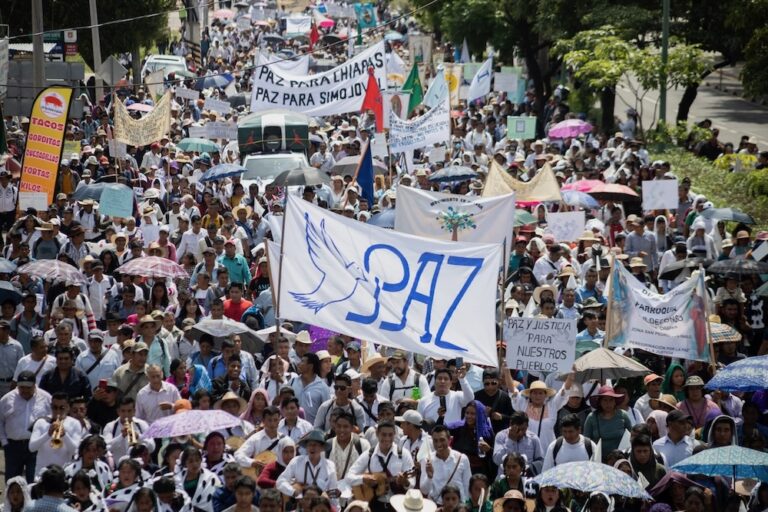(AMARC/IFEX) – In a 2 June 2004 joint statement, AMARC-Mexico and a number of human rights organisations expressed concern over threats by the Communications and Transport Secretariat (Secretario de Comunicaciones y Transportes, SCT) that it would shut down certain community radio stations. The organisations noted that in March 2004, the Interior Ministry formed a working […]
(AMARC/IFEX) – In a 2 June 2004 joint statement, AMARC-Mexico and a number of human rights organisations expressed concern over threats by the Communications and Transport Secretariat (Secretario de Comunicaciones y Transportes, SCT) that it would shut down certain community radio stations.
The organisations noted that in March 2004, the Interior Ministry formed a working group with AMARC-Mexico and the Mexican Commission for the Defence and Promotion of Human Rights (Comisión Mexicana de Defensa y Promoción de los Derechos Humanos) to begin a process for legalising the country’s community radio stations. On 14 April, Interior Minister Santiago Creel and SCT Secretary Pedro Cerisola agreed to review each station’s status so that operating licences could eventually be granted to the stations.
Despite this agreement, on 28 May, the SCT notified the legal representatives of La Voladora Radio de Amecameca, based in Mexico state, Radio Calenda, based in San Antonino, Oaxaca, and Radio Bemba, based in Hermosillo, Sonora, that their applications for a licence submitted on 10 December 2003 had been rejected. Moreover, the SCT warned the stations that if they did not cease operations immediately their assets would be seized.
The organisations also noted that the indigenous development commission (Comisión de Desarrollo de los Pueblos Indígenas) gave the go ahead within three months to radio stations wishing to operate in Michoacán, while, in contract, after seven months of waiting, community radio stations’ requests for permits have not been attended to and the SCT is threatening to shut them down.
The SCT has also notified Neza Radio, based in Mexico state, and Radio Guadalupe, based in Mexico City, that they would not be granted operating licences because of a shortage of available frequencies. Civil society organisations, however, have argued that the Mexican regulations are based on criteria that are 30 years old, whereas technological advances provide for more frequencies. It appears that the Mexican government is limiting the number of radio frequencies in an attempt to control access and prevent certain sectors of society from operating radio stations. This is a violation of Article 13 of the American Convention on Human Rights, which Mexico ratified in 1982.
The organisations that signed the 2 June statement urged the president to intervene and ensure that his government will fulfill commitments it has made regarding the legalisation of community radio stations.


